Editorials
– Resalat newspaper criticizes Rafsanjani’s call for reducing defense budget in favor of development
– Tafahum newspaper: wrong privatization of government-owned companies in Iran
Political
– Signing the sea demarcation agreement between Iran and Oman
– Tehran to provide more security support to Iraq
– A French Cyber attack on the Iranian nuclear plants
Military
– Three terrorists killed in Kermanshah
Economic
– Rise of trade exchange between Iran and Germany
![]()
Resalat Newspaper
“Negligence over national security.”
An editorial in Monday’s Resalat newspaper criticized Hashemi Rafsanjani’s recent remarks on reducing the cost of the military budget, quoting another attack on Rafsanjani over the same issue launched by Hossein Shariatmadari, the editor of Kayhan newspaper, who cited Khamenei’s opinion in response to Rafsanjani’s statement.
Rafsanjani had said that the cost of Iran’s military spending would strain the state’s budget and hinder its development, giving the examples of Germany and Japan which both reconsidered their spending priorities in the wake of World War Two, prioritizing development over arms and defense, which he said led to acceleration of industrialization and development in both countries until they attained the advanced stage they are now at.
There is no doubt that Rafsanjani’s comments angered Khamenei and more especially the Iranian Revolutionary Guards, who are currently witnessing massive and extremely rapid military expansion, particularly in their missile program and in Iran’s naval forces.
The editorial further stated that the current situation in Iran makes high military spending imperative, with the amount of money obtained by Iran after the lifting of sanctions estimated at US $30 billion. The effects of this are not reflected in any reduction in exchange rates nor any solution to the industrial crises related to the oil and financial sectors.
Some time ago, the editorial recalled, Rafsanjani made an inconsiderate statement asserting, “Tomorrow is the tomorrow of dialogue, not of missiles,” although he should have recalled that both Japan and Germany, both of which he expressed his admiration towards, had already attained the technology to make nuclear bombs within hours should they choose.
The Resalat editorial was almost a verbatim copy of the one in Kayhan, as though the text had been issued directly by Khamenei’s office, although there are differences between the regime’s different factions on the state’s administrative style, particularly its economic approach.
Rafsanjani has more than once stressed the need to prioritize development over military expenditure since, from his viewpoint, economic growth is smore essential to maintaining the regime than enhancing its military capability.
The editorial further stated that during the Iran-Iraq war of 1980-88, although Rafsanjani was president of the Iranian regime, Khamenei effectively controlled the state, with the events of that period having a deep effect on Rafsanjani and meaning that he has had problems ever since in concurring with Khamenei’s policies. While Khamenei wishes to see Iran once again on a wartime footing, adopting a ‘war economy’ and becoming self-sufficient, reducing the volume of foreign trade and being as self-reliant as possible in order to avoid any potential naval blockade, Rafsanjani believes this mentality to be incompatible with the contemporary era, and insists that there should be greater flexibility in adapting to events as they develop.
Jahan Sanat Newspaper
“Where are the rights of the destitute?”
Monday’s editorial in Jahan Sanat newspaper focused on the social and psychological dimensions of the Tehran municipality corruption scandal, in which the capital’s mayor was found to have distributed 27,000 pieces of land in the capital to friends and staff members.
The editorial pointed out that, apart from the legitimacy or otherwise of the charges, the scandal has thrown a new light onto the catastrophic conditions for the homeless and destitute in Iran, who are unable to afford even basic rent, ending up being evicted onto the streets, with whole families becoming ‘cardboard box sleepers’ as the homeless are known in Iran.
The editorial said that away from the debates centered on political struggles and factional infighting over the corruption detected by each party against the other, as though the situation were a football match and the scandal offered an opportunity for each side to score goals against the other, one question demands a firm response. Why didn’t Tehran’s mayor use the and which he distributed to friends and staff members to alleviate the homelessness crisis plaguing Tehran, or to build low-cost housing for the upcoming young generation to allow them to get married, or distribute the land to those currently living in slums so as to offer affordable housing to meet the needs of the city’s homeless.
Tafahom Newspaper
“Privatization led to unemployment.”
An editorial in Monday’s Tafahom newspaper criticized the privatization policies implemented by the Iranian regime in recent years.
The editorial talked about a recent statement by labor minister Ali Rabei calling for the revitalization of cooperatives sector to absorb the waves of unemployment that has increased since the government adopted privatization policies while adopting the privatization policies.
Commenting on Rabei’s statement, the editorial said that strengthening the cooperatives sector would be considered a socialist economic policy or state-controlled policy.
It added that since Iran is currently moving towards becoming a market economy, some ask how it is possible for the country to move in two opposing directions at once. The idea that the two concepts are mutually exclusive, however, is a false one, the editorial continues, adding that despite what officials say concerning the era of collectivist policies being over, Iran is not yet as capitalist as the US or South Korea,
The editorial pointed out that 40 percent of Brazil’s GDP is generated by collectivist policies, adding that while Iran has allocated around US$750 billion over the period of five development programs under the banner of providing justice and support for the disadvantaged, the populations of the country’s poor and marginalized areas remain as disadvantaged as ever.
![]()
♦ Iranian banks to open branches in Germany
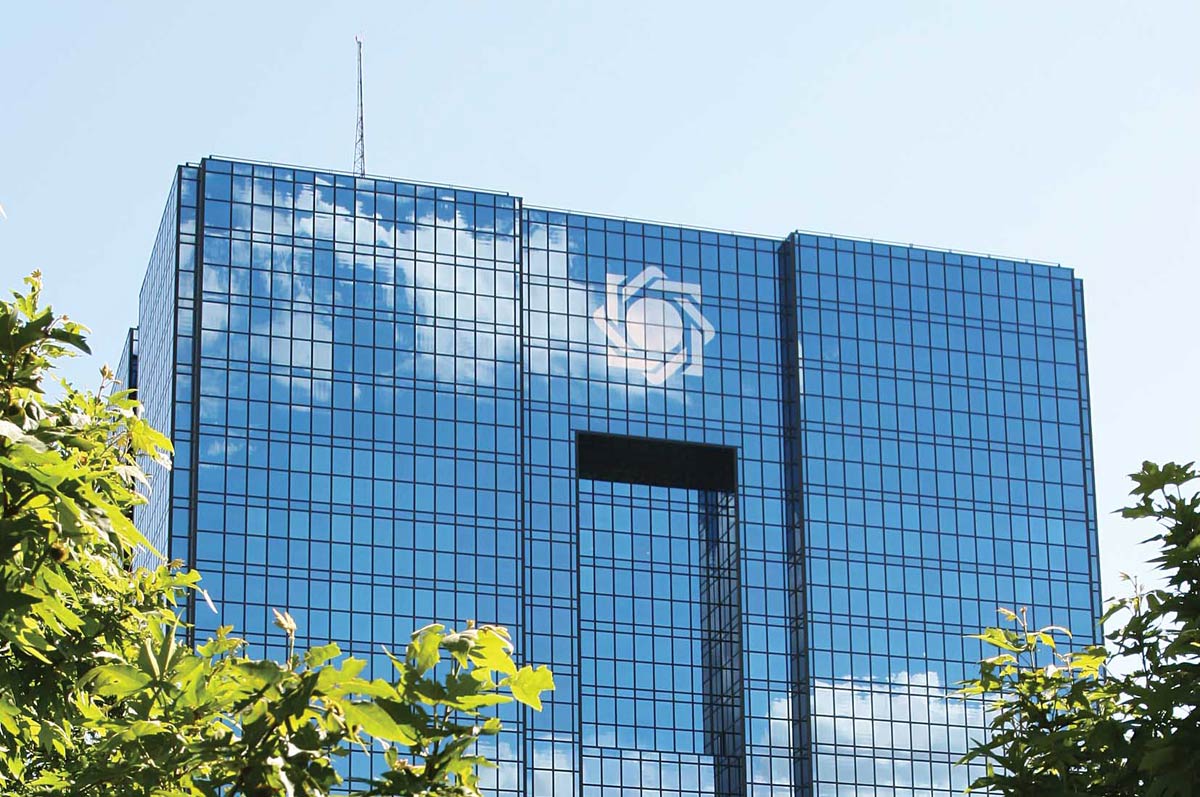
In his meeting with the German delegation, assistant head of the Iranian Central Bank, Akbar Kamijani announced opening three branches for Khawrmianeh, Sina, and Persian banks in Munich, Germany. Kamijani noted that the goal of opening these branches is to expand and facilitate the banking business with other countries.
Source: Abrar Eghtisadi Newspaper
♦ Four million barrels per day: Iran’s target of oil production

The International Affairs manager in the National Oil Company, Mohsin Ghamsari announced that Iran is prepared to raise its oil production to four million barrels per day during the next three months, in the case of the increasing demand in the market.
Source: Shfiqna Site
♦ Italian military delegation visiting Iran’s armed forces
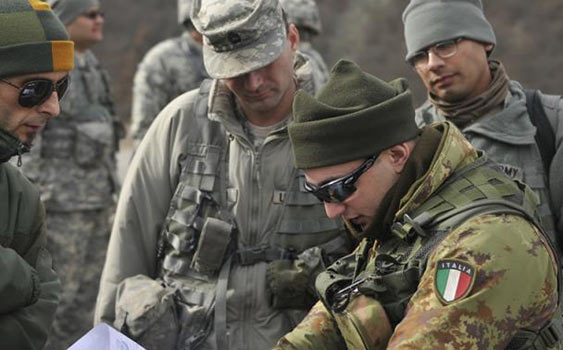
Under the terms of the military cooperation agreement between Iran and its friendly countries, an Italian military delegation of five personnel headed by Admiral Roberto Chiamakla, deputy head of the enterprise management and international relations in the Italian Army is visiting some Iranian military installations. The visit lasts for five days and both sides will discuss the bilateral relations between the two countries.
Source: ISNA Agency
♦ Signing the sea demarcation agreement between Iran and Oman
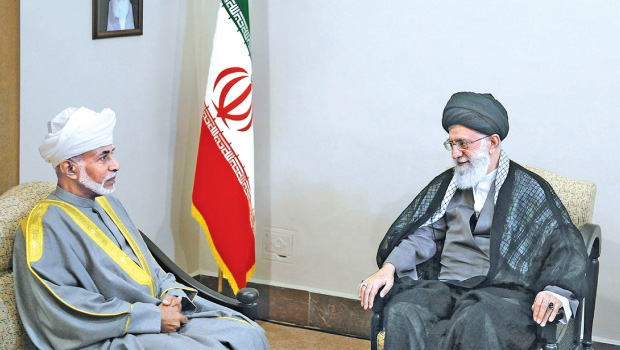
Oman’s minister of Interior, Hmoud Ben Faisal Albosa’eidi met Iran’s foreign minister, Mohammed Javad Zarif, at the Iranian foreign ministry, where they discussed the bilateral relations and regional conditions. “Our relations have no limits and come about through the will and wisdom of the leaderships of both countries, Zarif said.” On the other side, the Omani minister of interior asserted that the two countries enjoy strong relations that can be expanded on all levels. At the end of the meeting, both ministers signed a final agreement of the sea demarcation between the two countries.
Source: Press TV Channels
♦ Hassan Dana’i Fir: Iran is ready to provide more support to Iraq

The Iranian ambassador to Iraq, Hassan Dana’i Fir congratulated head of State of Law Coalition and former prime minister, Nouri Al-Maliki on liberating Khaldieh from the ISIS. Dana’i revealed that Iran is willing to strengthen relations with Iraq on all levels, especially the security level, and expressed the Iranian readiness to provide more support to Iraq in countering the ISIS.
On his side, Almalki claimed that the Iraqi security forces, the Public Mobilization Forces, and the Peshmerga are determined to eliminate the ISIS in Mosel after their victories in Khaldieh and Qiarah, expressing his thanks and appreciation to Iran for its support to Iraq.
Source: IRNA News Agency
♦ Haddad Adel: people would not accept the FATF humiliation
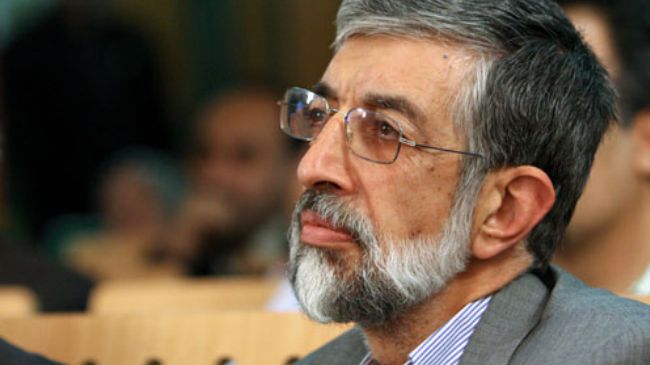
In his response to the government’s intention for self-imposition of Western sanctions on the organizations belonging to the Revolutionary Guards and signing of the money laundry contract, the Supreme Leader’s first advisor and member of the Expediency Discernment Council, Golam Ali Haddad Adel described it as treason and called for its termination, asserting that people and the Leader cannot accept this kind of humiliation.
Source: Akrein News Site
♦ welayati: FATF deal does not serve Iran’s interests
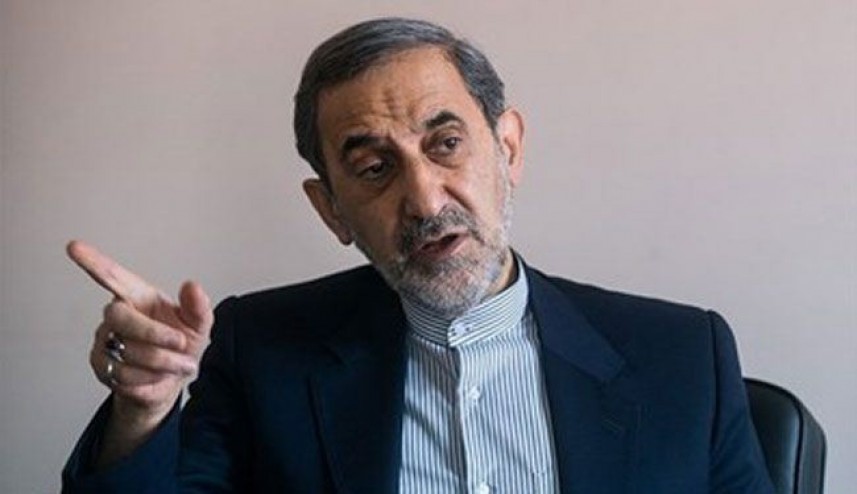
In response to reports about the banking sanctions on the Revolutionary Guards Khatam Alanbia base and two other Iranian banks, head of the strategic studies center in the Expediency Discernment Council and Khamenei’s advisor, Ali Velayati considered that the FATF deal for countering money laundry is not in Iran’s interests. After his meeting with Assistant Secretary General of human aids, Stefan Obrien; Velayati said that Iran is not committed to the unjust international financial resolutions against some Iranian security agencies by the FATF laws. He also noted that the goal of the international financial organizations is to deprive Iran of its financial capabilities and the international financial facilities, considering this as a continuation of sanctions.
Source: Tasnim Agency
♦ A French Cyber attack on Iran’s nuclear plants

Head of the French External Security Department, Bernar Barbeh said that the French Intelligence Agency and other Western countries such as Canada have been launching cyber attacks on the Iranian nuclear plants since 1992. At the same time, Barbeh considered that the United States was the director of the cyber attacks on the Elyse palace in Paris in 2012
Source: Etelaat Newspaper
♦ Three Suicide bombers killed in Kermanshah
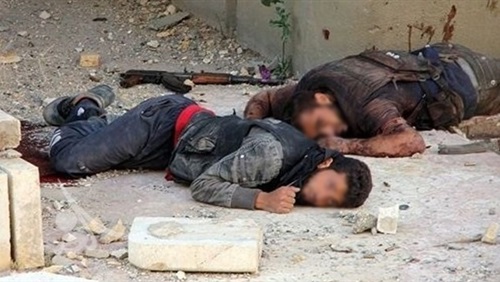
Head of the Iranian Special Forces, Hussein Karmi claimed that they were engaged with an ISIS group in Kermanshah and killed three terrorists who were carrying automatic guns and suicide belts, in addition to a very dangerous individual, noting that his forces carried out 28 operations against terrorists in 2014
Source: Iran Newspaper
